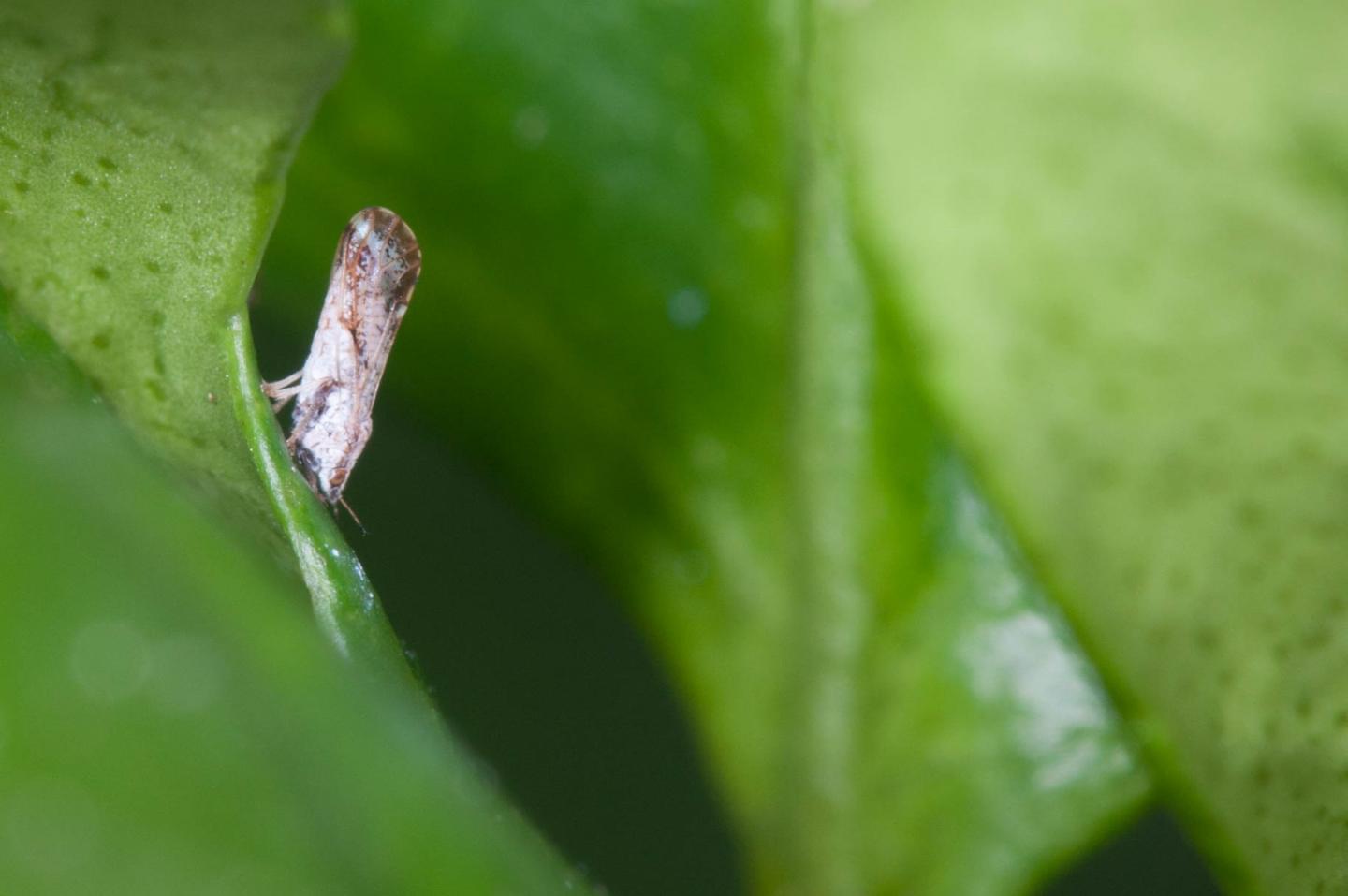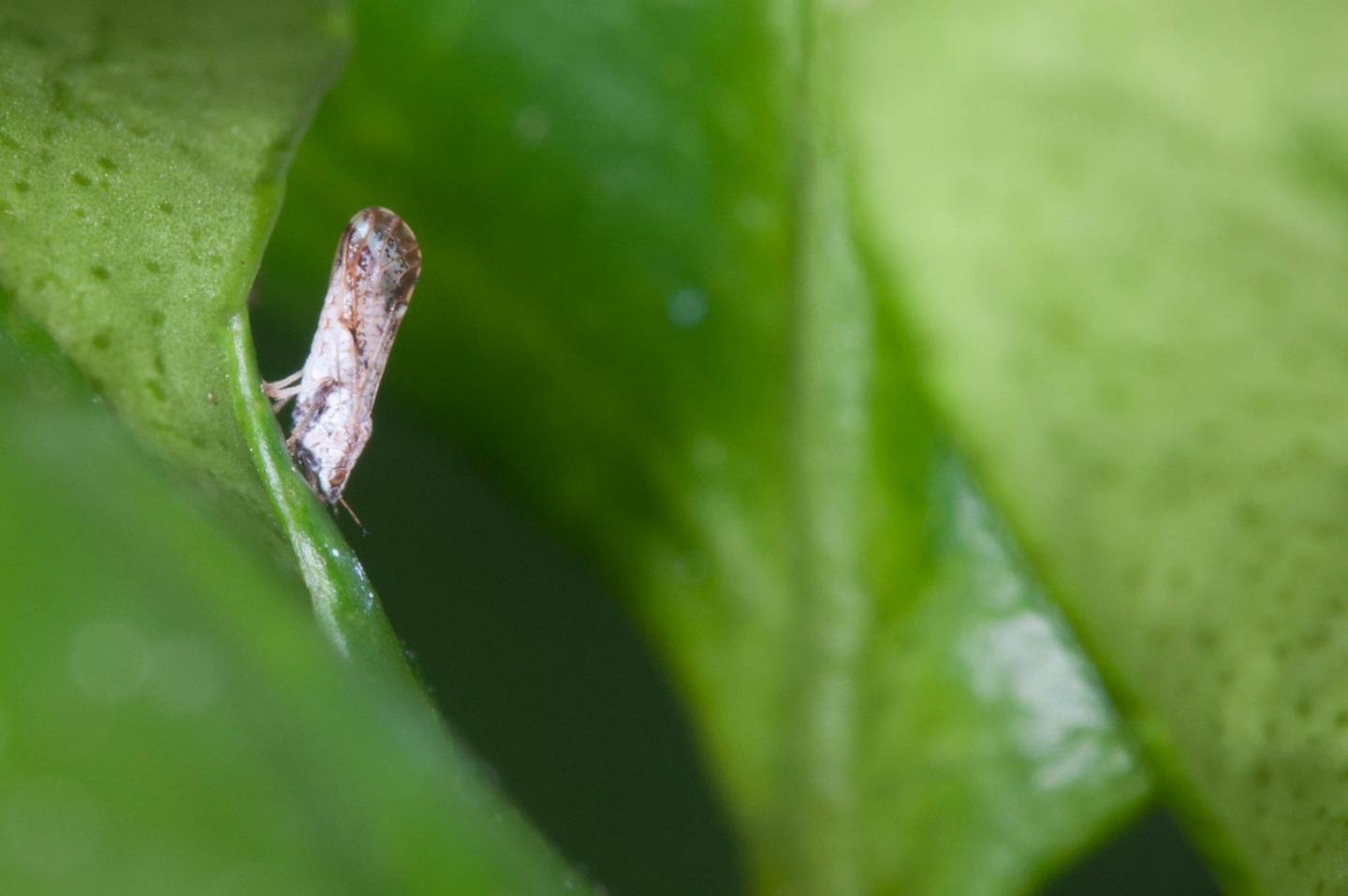
Credit: PROMark Yokoyama / Flickr (CCBY)
Scientists have used machine learning algorithms to teach computers to recognize the insect feeding patterns involved in pathogen transmission. The study, published in PLOS Computational Biology, also uncovers plant traits that might lead to the disruption of pathogen transmission and enable advances in agriculture, livestock and human health.
Insects that feed by ingesting plant and animal fluids cause devastating damage to humans, livestock, and agriculture worldwide, primarily by transmitting pathogens of plants and animals. These insect vectors can acquire and transmit pathogens causing infectious diseases such as citrus greening through probing on host tissues and ingesting host fluids. The feeding processes required for successful pathogen transmission by sucking insects can be recorded by monitoring voltage changes across an insect-food source feeding circuit.
In this research, entomologists and computer scientists at the United States Department of Agriculture-Agricultural Research Service (USDA-ARS), University of Florida, and Princeton University used machine learning algorithms to teach computers to recognize insect feeding patterns involved in pathogen transmission.
In addition, these machine learning algorithms were used to detect novel patterns of insect feeding and uncover plant traits that might that lead to disruption of pathogen transmission. While these techniques were used to help identify strategies to combat citrus greening, such intelligent monitoring of insect vector feeding will facilitate rapid screening and disruption of pathogen transmission causing disease in agriculture, livestock, and human health.
###
In your coverage please use this URL to provide access to the freely available article in PLOS Computational Biology: http://dx.plos.org/10.1371/journal.pcbi.1005158
Citation: Willett DS, George J, Willett NS, Stelinski LL, Lapointe SL (2016) Machine Learning for Characterization of Insect Vector Feeding. PLoS Comput Biol 12(10): e1005158. doi:10.1371/journal.pcbi.1005158
Funding: Significant funding was provided by the Citrus Research and Development Foundation. http://citrusrdf.org/ The funders had no role in study design, data collection and analysis, decision to publish, or preparation of the manuscript.
Competing Interests: The authors have declared that no competing interests exist.
Media Contact
Denis Willett
[email protected]
Source:





